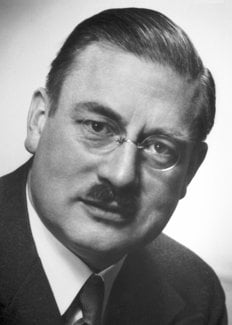Peter Debye
Biographical

Petrus (Peter) Josephus Wilhelmus Debye was born March 24, 1884, at Maastricht, the Netherlands. He received his early education at the elementary and secondary schools in his home town and from then on his life has been devoted to a search for knowledge. He continued his studies at the Aachen Institute of Technology (Technische Hochschule) and gained a degree in electrical technology there, in 1905. This led to his appointment as Assistant in Technical Mechanics at the Aachen Technological Institute, where he worked for two years. In 1906 Debye obtained a similar position in Theoretical Physics at Munich University, where he qualified as a University lecturer in 1910 (having obtained this University’s Ph.D. in Physics in 1908).
In the following year, i.e. 1911, Debye became Professor of Theoretical Physics at Zurich University, where he remained for two years. He returned to The Netherlands in 1912 when he was appointed Professor of Theoretical Physics at Utrecht University, and in 1914 he moved to the University of Göttingen, to take charge of the Theoretical Department of the Physical Institute. Later, he became Director of the entire Institute and lectured on experimental physics until 1920.
In 1915 Professor Debye became Editor of Physikalische Zeitschrift and continued to act in this capacity until 1940.
Debye returned to Zurich in 1920, as Professor of Physics, and Principal of the Eidgenössische Technische Hochschule. In 1927 he held the same post at Leipzig and from 1934 to 1939 he was Director of the Max Planck Institute of the Kaiser Wilhelm Institute for Physics in Berlin-Dahlem and Professor of Physics at the University of Berlin.
This appointment terminated his work in Europe, and in 1940 he became Professor of Chemistry and Principal of the Chemistry Department of Cornell University, Ithaca, New York, taking American citizenship in 1946.
The year 1952 saw Debye’s resignation of his post of Head of the Chemistry Department at Cornell University and his appointment later as Emeritus Professor of Chemistry at Cornell University.
Professor Debye was wedded to Physics and Chemistry and his devotion to his work gained him many distinctions, and Honorary Doctorates have been conferred upon him by the following universities and learned institutes: Brussels and Liège; Oxford; Sofia; Mainz; Technische Hochschule, Aachen; Eidgenösissche Technische Hochschule, Switzerland; and in the United States: Harvard; St. Lawrence; Colgate; Notre Dame; Holy Cross; Brooklyn Polytechnic; Boston College; Providence College. He holds the Rumford Medal of the Royal Society, London, and the Franklin and Faraday Medals, the Lorentz Medal of the Royal Netherlands Academy, the Max Planck Medal (1950) awarded by the West Germany Physical Society, the Willard Gibbs Medal “Chicago (1949), the Nichols Medal (1961), the Kendall Award (Miami, 1957), and the Priestley Medal of the American Chemical Society (1963); and was appointed Kommandeur des Ordens Leopold II in 1956.
Debye was a Visiting Lecturer at many universities – Columbia, California, Paris, Liège, Oxford, Cambridge, Harvard, Michigan, South California – and has been associated with scientific academies in many countries: Washington, New York, Boston, and Philadelphia in the United States of America; The Netherlands; Great Britain (the Royal Institute of Great Britain and the Royal Society, London); Denmark; Berlin, Göttingen, and Munich (Germany); Brussels and Liège (Belgium); Royal Irish Academy, Dublin; the Papal Academy, Rome; the Indian Academy, Bangalore and the National Institute of Science (India); the Real Sociedad Española de Fisica y Quimica and Academia de Ciencias, Madrid (Spain); and the Academies of Science of the U.S.S.R., Hungary and Argentina. The year 1936 saw the award of the greatest honour possible to him – the Nobel Prize for Chemistry.
Professor Debye is married to Mathilde Alberer and has a son Peter Paul Rupprecht (b. 1916) and a daughter Mathilde Maria (b. 1921), both married.
This autobiography/biography was written at the time of the award and first published in the book series Les Prix Nobel. It was later edited and republished in Nobel Lectures. To cite this document, always state the source as shown above.
Peter Debye died on November 2, 1966.
Nobel Prizes and laureates
Six prizes were awarded for achievements that have conferred the greatest benefit to humankind. The 14 laureates' work and discoveries range from quantum tunnelling to promoting democratic rights.
See them all presented here.
